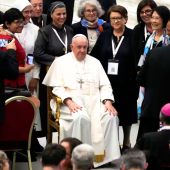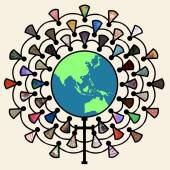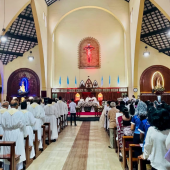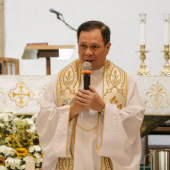‘Japanese women empowerment group keen on advancing sisterhood across borders,’ study reveals

A study published on April 26 in Acta Theologica Journal found that the COVID-19 pandemic's impact on Asian women and their families' employment, livelihood, and health has inspired a Japanese women's empowerment group to promote global solidarity.
Espousing global sisterhood, the Asian Women Empowerment Project (AWEP) holds that women worldwide share daily experiences regardless of race, nationality, ethnicity, and economic status and should help one another.
During the pandemic, AWEP assisted foreign women in Japan who lost their jobs due to the closure of establishments that employed them due to the pandemic, said Prof. Jean Peracullo of De La Salle University Department of Philosophy, who examined AWEP's activities.
De La Salle University is a Catholic school in Manila run by the Institute of the Brothers of Christian Schools.
She added that the assistance also covered mental health awareness campaigns and cultural tasks such as translating complex Japanese legal documents to English or Filipino.
"Women bore and continue to endure the more significant burden from the effects of the pandemic because of the social expectation to manage domestic obligations, oversee children's education at home, and extend care to ill family members," Peracullo said.
AWEP is focused on producing and selling fair-trade goods to help women earn and increase their income, she noted.
"Specifically, its brochures and newsletters list its objectives as follows: To create jobs for the single mother members mainly through producing fair-trade goods; to acquire and disseminate the fair-trade spirit and knowledge; to empower women, and to train women to become managers themselves in the future," Peracullo said.
In its Facebook shop, AWEP carries products its members sell in its Facebook shop, like bags, mobile phone pouches, necklaces, wallets, slippers, and many more.
The pandemic damaged "economically challenged women," especially in developing countries in Asia," Peracullo said. "Some transnational groups adopted measures to join efforts to address challenges spawned by the pandemic. She added that these groups, mostly citizen-initiated, crossed borders, offering financial aid, capacity-building programs, and more."
Most of the campaigns offered economically challenged women with means to survive the impacts of globalization, Peracullo said.
"Japanese women are at the forefront of this movement," Peracullo said. "Their relative economic stability, the growing political consciousness of gender equality and parity, and a heightened sense of the need for social transformation have all contributed to their activism, which, in turn, provided the impetus to initiate projects for other women less privileged than they are."
Peracullo pointed out that social inequality in Asia was "expanding more rapidly than in any other region."
"Fast income growth and rapid progress of globalization and technological change have accelerated income inequality in Asia over the past two and half decades," she said. "Moreover, the coronavirus pandemic that gripped the world in 2020 greatly affected women who are overly represented in informal sectors because they lost their jobs and other means of livelihood."
AWEP exhibited Japanese women's firm grasp of the necessity for an ecological ethic of solidarity, Peracullo observed. This ethics includes ecological interest, solidarity awareness, and cooperation through global sisterhood.
She noted that the pandemic had opened the need to review international solidarity and cooperation. Solidarity and collaboration should be more people-driven and anchored on the shared experiences of people.
"AWEP's notion of female solidarity contributes to deepening the understanding of being women helping other women across borders, nationalities, ideologies, and cultures while remaining sensitive to the post-colonial realities of southeast Asians," Percullo said. "Japanese women's activism is peculiar among its Asian counterparts in its emphasis on networking, study groups, and volunteerism"
Acta Theologica is an accredited South African journal that publishes independently reviewed research articles. In its recent publication, the journal focused on" Towards life-giving communities in a post-pandemic world: Asian feminist theological perspectives"
Radio Veritas Asia (RVA), a media platform of the Catholic Church, aims to share Christ. RVA started in 1969 as a continental Catholic radio station to serve Asian countries in their respective local language, thus earning the tag “the Voice of Asian Christianity.” Responding to the emerging context, RVA embraced media platforms to connect with the global Asian audience via its 21 language websites and various social media platforms.














